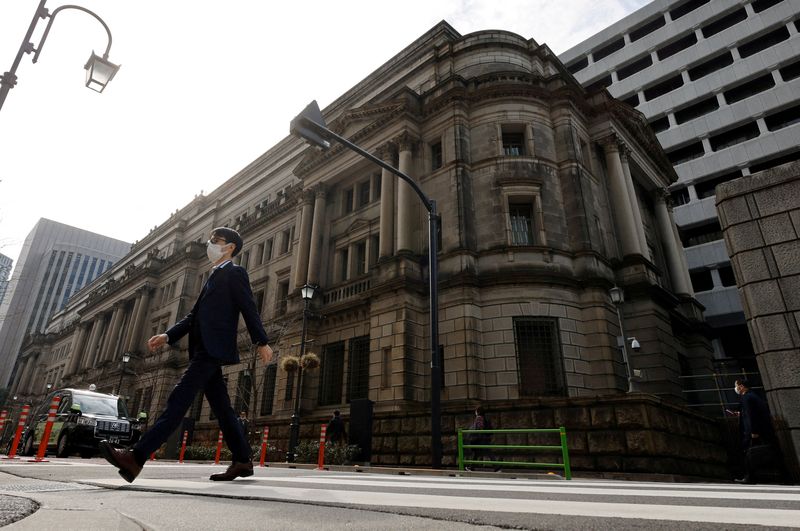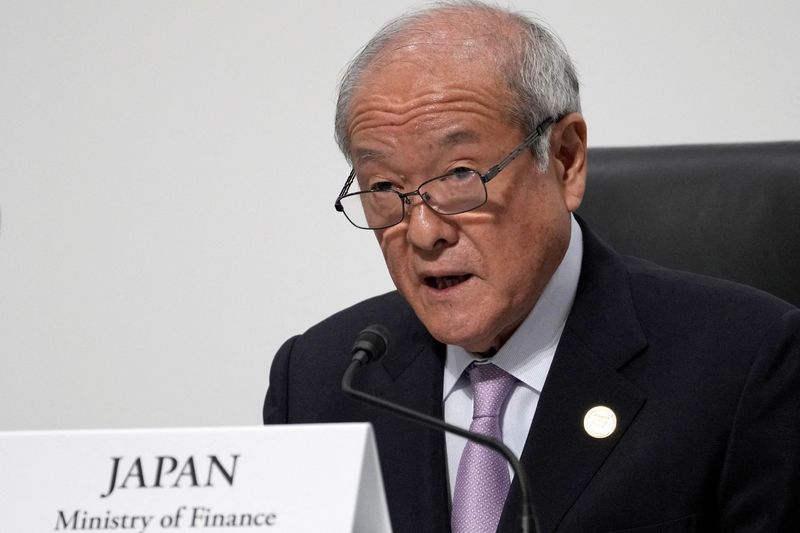By Yoshifumi Takemoto and Leika Kihara
TOKYO (Reuters) -Influential ruling party lawmaker Hiroshige Seko signalled his abiding preference for an ultra-loose monetary policy on Tuesday, following hawkish comments by Japan's central bank chief that pushed up the yen and bond yields.
In an interview on Saturday, Bank of Japan Governor Kazuo Ueda said the central bank might have enough data by year-end to determine whether it can end negative interest rates, shocking markets that did not see such a move as imminent.
"Monetary easing will eventually end. But Governor Ueda has said an exit will come after achieving the bank's 2% inflation," Seko told a regular news conference on Tuesday.
While rising raw material costs are pushing up prices, Japan has yet to achieve demand-driven, sustained inflation of 2% that the central bank is aiming for, he said.
The remarks by Seko, a heavyweight in the ruling Liberal Democratic Party (LDP) and a vocal advocate of aggressive monetary easing, highlight the kind of opposition Ueda's BOJ will face exiting from its ultra-loose monetary policy.
The yen steadied near a one-week high on Tuesday and the 10-year Japanese government bond yield rose to a near decade-high of 0.715%, as markets priced in the chance of an earlier-than-expected interest rate hike.
Ryutaro Kono, chief Japan economist at BNP Paribas (OTC:BNPQY) Securities, said Ueda's comments likely aimed at taming recent yen declines that were pushing up import costs.
"If markets price in the chance of a policy tweak in the not-so-distant future, Japanese interest rates will rise and take downward pressure off the yen," he said.
Finance Minister Shunichi Suzuki, in charge of the ministry overseeing currency policy, declined to comment when asked about Ueda's remarks at a news conference on Tuesday.

"I hope the BOJ continues to work closely with the government ... to achieve its price target in a stable and sustainable fashion," Suzuki said.
Governor Ueda has repeatedly stressed the need to keep ultra-loose monetary policy until Japan can sustainably meet the bank's 2% target backed by solid consumption and wage growth - a point he repeated at the weekend interview.
